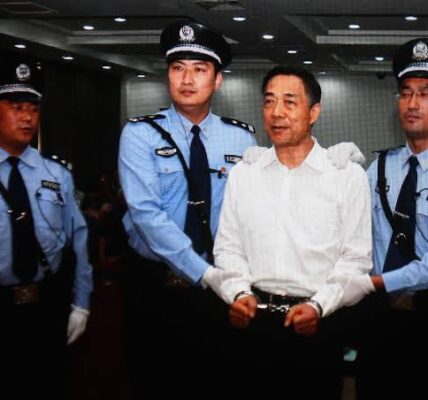Skip to content
Was Tebogo ‘Disrespectful’ in His Diamond League Win?.

In athletics, especially in track and field, raw athleticism and personal victories often take center stage.
However, when an athlete’s behavior on the track transcends the typical celebratory gestures, it can spark a debate about sportsmanship and respect.
This was certainly the case after Botswana’s teenage sprint sensation, Letsile Tebogo, secured a dominant win at the 2023 Diamond League meeting in Zurich.

While his victory was a testament to his undeniable talent, the manner in which he celebrated his triumph raised questions among fans, commentators, and athletes alike.
The crux of the controversy? Tebogo’s celebratory gesture, which many deemed to be “cheeky,” prompting a conversation about whether he was being disrespectful to his competitors or merely basking in the glory of his achievement.
The Victory and the Gesture
On September 7, 2023, Tebogo, at just 20 years old, defeated a high-caliber field of sprinters in the 200 meters, running an impressive 19.87 seconds.

This win in Zurich, which followed his earlier success in Budapest at the World Championships, firmly positioned him as one of the rising stars in world sprinting.
However, it was not just his performance on the track that made headlines; it was his post-race celebration.
As the rest of the field crossed the line, Tebogo began his usual “jump and arm raise,” but this time he added an additional, distinct touch: He pointed his fingers forward in what appeared to be a deliberate show of superiority or an acknowledgment of his strength in the race.
In a sport that typically features celebratory fist pumps, arm raises, and sometimes even light-hearted displays, Tebogo’s pose seemed more assertive and sharp.
His behavior left some observers wondering whether the gesture crossed the line from confident to disrespectful.
The word “cheeky” was frequently used to describe his demeanor — a term often synonymous with mischievousness and audacity.
Was Tebogo simply enjoying his moment, or was he intentionally trying to send a message to the competition, and by extension, the world?
The Nature of Competition and Respect in Athletics
To understand whether Tebogo’s actions were disrespectful, it’s crucial to examine the role of respect in competitive athletics.
Track and field has long been seen as an arena where sportsmanship and respect for one’s competitors are paramount.
Athletes are expected to acknowledge their opponents’ skills and their efforts, often through handshakes, nods, or mutual praise.
At the same time, however, athletics is a sport that celebrates individual achievement and personal milestones.
In many ways, the line between confident celebration and disrespect is thin and subjective.
For instance, it’s not uncommon for athletes to engage in exuberant celebrations following personal or major victories.
Usain Bolt, the iconic Jamaican sprinter, was famous for his “Lightning Bolt” pose after crossing the finish line, which became a symbol of his dominance in the sport.
Although Bolt’s behavior was often seen as an expression of his personality and pride, it occasionally drew criticism, particularly from those who felt that such displays bordered on arrogance.
Tebogo, like Bolt, has quickly developed a reputation as a brash and self-assured athlete.
The difference, however, lies in the cultural context of his actions.
While Bolt’s exuberant celebrations were often received as part of his larger-than-life persona, Tebogo’s moment was different in the sense that it was his first big win on the global stage, and his victory marked the arrival of a new sprinting star.
The celebration, therefore, took on additional significance, drawing more scrutiny than similar actions from more established athletes.
The Context of Tebogo’s Career
Tebogo’s rise in the world of sprinting has been meteoric, and he is still in the process of finding his place among the greats of the sport.
As a young athlete from Botswana, he faces the unique challenge of balancing the pressure to succeed with the need to show humility and respect toward his competitors.
His attitude, particularly his confidence, has been one of the driving forces behind his success.
The Diamond League win in Zurich and his performance at the World Championships are clear indicators that Tebogo has a mentality of a champion, and this is often accompanied by a sense of defiance — something that’s natural in a sport where a few hundredths of a second can separate victory from defeat.
However, while confidence is key, there is an expectation for athletes to maintain a level of respect towards their peers. This is where the debate around Tebogo’s celebration comes in.
Did his actions undermine the spirit of sportsmanship? Or was he simply reveling in the joy of his success, as any athlete would?
Responses to Tebogo’s Actions
The responses to Tebogo’s celebration were mixed.
Some commentators and fans argued that his celebration was within the bounds of normal athletic behavior, especially considering his age and the nature of his achievement.
After all, winning a prestigious race like the Diamond League final is an accomplishment that most athletes only dream of. Others, however, felt that his gesture may have been disrespectful, particularly to his fellow competitors who had been striving for the same victory.
It is also important to note that Tebogo’s celebration didn’t appear to directly target any individual athlete or seem designed to provoke his rivals. Unlike trash-talking or overt gestures aimed at humiliating competitors, Tebogo’s celebration was more about him asserting his dominance over the field as a whole. In the world of elite athletics, moments of personal triumph often involve some form of celebratory gesture, and Tebogo’s actions seemed to fall in line with that tradition.
Confidence vs. Disrespect?
Was Tebogo being disrespectful in his Diamond League win? Ultimately, the answer depends on one’s perspective.
In a sport where individualism and fierce competition are celebrated, the boundary between confidence and arrogance can be easily blurred.
Tebogo’s actions could be viewed as a natural extension of his youthful exuberance and the pride he felt in his victory.
Alternatively, some may argue that his gesture went too far in terms of public perception, crossing the line from celebration into a potential provocation.
However, as athletics continues to evolve, it’s clear that what is considered “respectful” or “disrespectful” in sports is ever-changing.
Let’sile Tebogo’s Diamond League win wasn’t just a victory on the track; it also highlighted the complex dynamic between self-expression, competitive spirit, and sportsmanship — something that will continue to spark discussion in the years to come.





